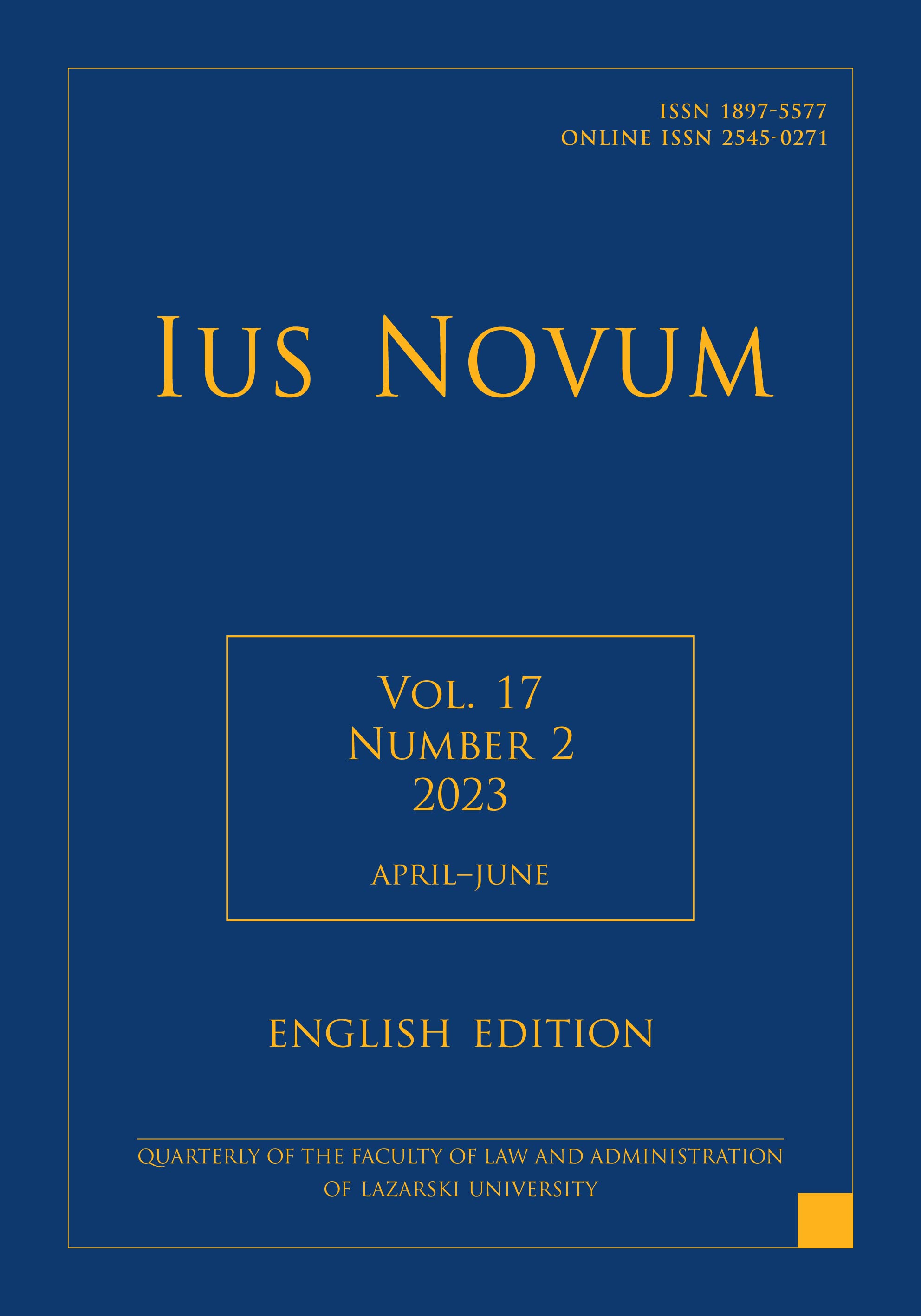Abstrakt
The scholarly and research-focused article aims to analyse resolutions and rulings of the Supreme Court Criminal Chamber concerning substantive criminal law passed in 2022 as a response to the so-called legal questions. The subject of the analysis covers such issues as: the crime of failure to report a crime (Article 240 § 1 of the Criminal Code); suspension of the statute of limitations for criminal offenses due to the COVID-19 pandemic; a student of the Faculty of Public Order of the Academy of Internal Affairs in Szczytno as a person not serving in the state security bodies; and revocation of a driving licence in the event its holder who is a member of a military unit performing tasks outside the country commits an act consisting in driving a motor vehicle under the influence of alcohol (Article 135(1) of the Road Traffic Act). The fundamental objective of this scientific research is to evaluate the legitimacy of this body’s interpretation of the regulations encompassing legal issues referred to the Supreme Court for resolution. The primary research theses aim to demonstrate that the so-called legal questions referred to the Supreme Court play an important role in ensuring the uniformity of common and military courts’ judgements, given that the body’s stance relies on in-depth reasoning. The research findings present an original perspective developing the interpretation found in the analysed resolutions in a creative way. While the research primarily focuses on national aspects, the article holds significant importance for the scientific community. This is due to its detailed dogmatic analysis and substantial theoretical discourse. Moreover, its practical utility is evident as it enriches the Supreme Court’s arguments and addresses circumstances that justify diverse opinions.
Bibliografia
Kluza, J., ‘Zawieszenie terminów przedawnienia karalności czynów zabronionych w czasie pandemii koronawirusa’, e-Palestra, 2020.
Królikowski, M., ‘Problemy z nowym zakresem obowiązku zawiadomienia o przestępstwie’, Forum Prawnicze, 2021, No. 4.
Lipiński, K., ‘Modyfikacje terminów przedawnienia karalności przestępstw, przestępstw i wykroczeń skarbowych oraz wykroczeń w związku z epidemią COVID-19’, Czasopismo Prawa Karnego i Nauk Penalnych, 2020, No. 2.
Lipiński, K., Giezek, J. (eds), in: Kodeks karny. Komentarz, Warszawa, 2021.
Marszał, K., ‘Spoczywanie terminu przedawnienia w prawie karnym’, Ruch Prawniczy, Ekonomiczny i Socjologiczny, 1966, No. 2.
Mezglewski, A., in: Mezglewski, A., Nowikowska, M., Kurek, J., Prawo o ruchu drogowym. Komentarz, Warszawa, 2020.
Mozgawa, M., in: Mozgawa, M. (ed.), Kodeks karny. Komentarz, Warszawa, 2019.
Mozgawa, M., in: Mozgawa, M. (ed.), Kodeks karny. Komentarz zaktualizowany, LEX/el. 2023.
Stefański, R.A., ‘Spoczywanie biegu przedawnienia’, in: Kodeks karny, in: Interdyscyplinarność – w nauce najciekawsze rzeczy dzieją się na styku różnych dziedzin. Księga jubileuszowa Profesor Małgorzaty Król-Bogomilskiej, Warszawa, 2021.
Stefański, R.A., Grzegorczyk, T., Świecki, D. (eds), ‘Zatrzymanie prawa jazdy jako środek przymusu w postępowaniu karnym’, in: System Prawa Karnego Procesowego. Środki przymusu, Vol. IX, Warszawa, 2021.
Wilk, A., ‘Glosa uchwały Sądu Najwyższego – Izba Karna z dnia 1 lipca 2022 r., I KZP 5/22’, Orzecznictwo Sądów Polskich, 2023, No. 1.
Wróbel, W., Zmiana normatywna i zasady intertemporalne w prawie karnym, Kraków, 2003.
Zgoliński, I., in: Konarska-Wrzosek, V., Kodeks karny. Komentarz, Warszawa, 2020.
Żylińska, J., ‘Prawny obowiązek zawiadomienia o niektórych przestępstwach (art. 240 k.k.)’, Prokuratura i Prawo, 2015, No. 10.

